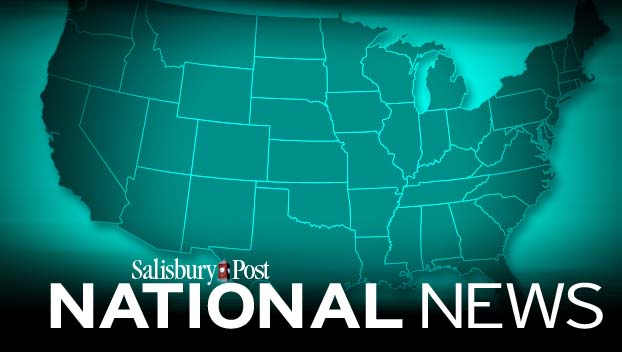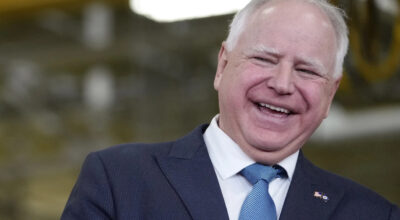Pence, wife Karen, surgeon general get COVID-19 vaccines
Published 2:07 pm Friday, December 18, 2020
WASHINGTON (AP) — Vice President Mike Pence became the highest ranking U.S. official to receive the first dose of the COVID-19 vaccine on Friday in a live-TV event aimed at reassuring Americans the shot is safe. He celebrated the milestone as “a medical miracle” that could eventually contain the raging pandemic.
Conspicuously missing from the victory lap: President Donald Trump, who has remained largely out of sight five days into the largest vaccination campaign in the nation’s history.
Pence, meanwhile, has taken an increasingly visible role in highlighting the safety and efficacy of the shots, including touring a vaccine production facility this week. House Speaker Nancy Pelosi also received a COVID-19 vaccine Friday, and Senate Majority Leader Mitch McConnell has said he will get vaccinated in the next few days. President-elect Joe Biden and his wife will be getting the vaccine on Monday, while Vice President-elect Kamala Harris and her husband are set to receive it the week after next.
“I didn’t feel a thing. Well done,” Pence told the technicians from Walter Reed National Military Medical Center who administered his Pfizer-BioNTech shot early Friday morning. Pence didn’t flinch during the quick prick, nor did his wife, Karen, or Surgeon General Jerome Adams, who also received shots during the televised White House event in the Eisenhower Executive Office Building.
“Hope is on the way,” Pence later said. “The American people can be confident: We have one and perhaps within hours two safe vaccines,” he added, referring to the FDA’s expected authorization of a second vaccine by Moderna.
He did not respond to shouted questions about why the president wasn’t headlining a similar event.
Adams, who is Black, emphasized the “the importance of representation” in outreach to at-risk communities and encouraged Americans to avoid disinformation around the vaccines.
Five days into the largest vaccination campaign in the nation’s history, Trump has been largely absent from the effort to sell the American public on what aides hope will be a key part of his legacy. He has held no public events to trumpet the rollout. He hasn’t been inoculated himself. And he has tweeted fewer than a handful of times about the shot.
Trump’s relative silence comes as he continues to stew about his defeat in the Nov. 3 election and embraces increasingly extreme efforts to overturn the people’s will. He’s pushed aside the plans of aides who wanted him to be the public face of the vaccination campaign, eschewing visits to labs and production facilities to thank workers, or hosting efforts to build public confidence in the shot, according to people familiar with the conversations.
The sheepish approach has been surprising, especially for a president rarely shy to take credit, said Lawrence Gostin, a professor at Georgetown Law who focuses on public health.
“The president’s relatively low profile on the COVID response since the election is curious and counter to Mr. Trump’s own interests,” he said. Gostin, who has criticized Trump’s handling of the pandemic in the past, said that he “deserves a great deal of credit” for Operation Warp Speed and placing a bet on two vaccines that use groundbreaking mRNA technology.
“Having exhibited leadership in the vaccines’ development, he should take great pride in publicly demonstrating his trust in COVID vaccines,” he said.
Trump did appear at a White House “summit” ahead of the Food and Drug Administration’s approval of the Pfizer vaccine last week. That event included an introductory video highlighting the past comments of those — including top government infectious-disease expert Dr. Anthony Fauci — who had doubted a shot would be ready this year.
Trump “will continue to update the country through a variety of means while giving medical professionals and hardworking staff at (Operation Warp Speed) the space to do their jobs and save lives,” said White House deputy press secretary Brian Morgenstern.
But many Trump aides are puzzled by his low profile now that the vaccine is actually being injected. They see it as a missed opportunity for the president, who leaves office at noon on Jan. 20, to claim credit for helping oversee the speedy development and deployment of the vaccine that is expected to finally contain the virus that has killed more than 310,000 Americans.
Trump himself has tried to minimize any credit that might go to his successor, Biden, who will preside over the bulk of the nationwide injection campaign next year.
“Don’t let Joe Biden take credit for the vaccines,” Trump has told reporters. “Don’t let him take credit for the vaccines because the vaccines were me, and I pushed people harder than they’ve ever been pushed before.”




